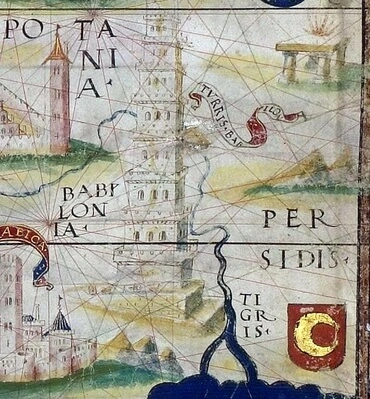Babylon (Babel)

Babylon var en gammal stad byggd vid floden Eufrat i det som nu är södra Irak. Det var en gång huvudstad i ett stort imperium som vid en tidpunkt erövrade Judas land som nämnts i den andra kungeboken och i Daniel. Men floden ändrade kurs och staden övergavs för länge sedan. Både den historiska staden i Mesopotamia och liknelsesstaden med dess torn, nämnd i 1 Mosebok, representerar samma sak, en dyrkan som verkar helig i yttre, medan internerna är profan. Denna representation utvidgas till att innebära en kyrka vars ledare använder denna typ av dyrkan för att få herra över andra för sin egen vinst och för kyrkans vinst och makt. Staden själv är den doktrinära strukturen som stöder denna typ av dyrkan och herravälde.
(Препратки: Apokalypsen förklarad 1029; Himmelska Hemligheter 1283, 1302, 1304, 1310, 1311)
Arcana Coelestia #1283
1283. THE INTERNAL SENSE
The subject now is the Ancient Church in general and the fact that its internal worship in process of time was falsified and adulterated; and so as a consequence was its external worship, for the character of external worship depends on that of internal. The falsification and adulteration of internal worship is meant here by Babel. The fact that the historical events mentioned up to now, apart from those concerning Eber, are not true but made-up may also be seen from the details given in this chapter concerning the tower of Babel - men set out to build a tower whose head was in heaven; their lips were confused so that no one could hear another; it was Jehovah who confused them in this way. This fact may also be seen from the assertion that this was the origin of Babel and yet verse 10 of the previous chapter says that Babel was built by Nimrod. From this it is also clear that Babel does not mean a city, but some real thing, and that here it means worship whose interior features are not holy though its external appear so.






